Neuroscience
-
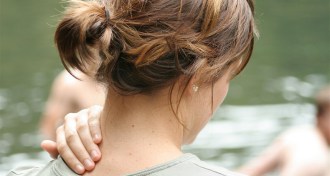 Neuroscience
NeurosciencePain may come in his and hers
Males and females rely on different kinds of cells to carry pain signals, a mouse study suggests.
-
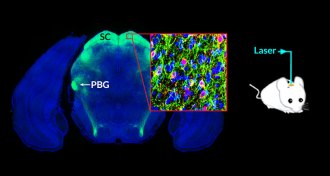 Neuroscience
NeuroscienceOne path that fear takes in the brain discovered
By hijacking a newly discovered pathway in mice’s brains, scientists inspire fear.
-
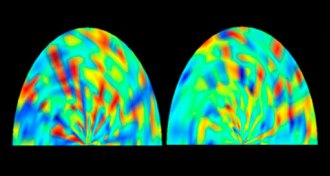 Neuroscience
NeuroscienceSense of smell is strictly personal, study suggests
A new test can identify individuals based on their sense of smell, and may hold information about a person’s genetic makeup as well.
-
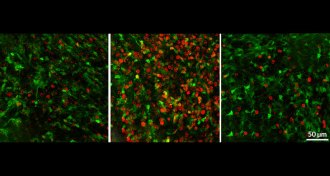 Neuroscience
NeuroscienceBrain’s adult stem cells born early
By tracing the lineages of adult stem cells in the mouse brain, scientists get a view of the cells’ early lives.
-
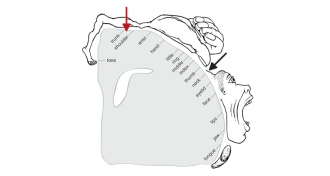 Neuroscience
NeuroscienceHomunculus reimagined
A new study pinpoints the part of the brain that controls the neck muscles, tweaking the motor homunculus.
-
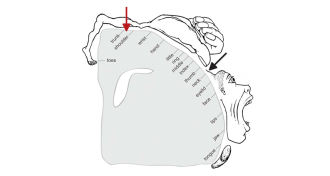 Neuroscience
NeuroscienceHomunculus reimagined
A new study pinpoints the part of the brain that controls the neck muscles, tweaking the motor homunculus.
-
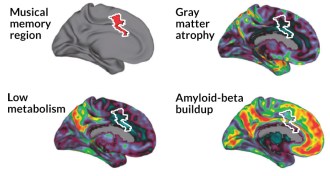 Neuroscience
NeuroscienceAlzheimer’s spares brain’s music regions
Brain regions involved in recognizing familiar songs are relatively unscathed in Alzheimer’s disease.
-
 Neuroscience
NeuroscienceFemale’s nose blocks scent of a male
When a female mouse is in an infertile stage of her reproductive cycle, her nose cells don’t alert her brain to the presence of a potential mate.
-
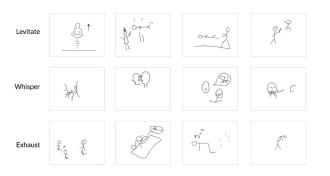 Neuroscience
NeuroscienceCerebellum may be site of creative spark
Brain scan experiment hints that cerebellum might have a hand in getting creative juices flowing.
-
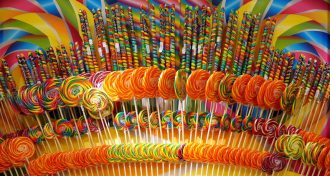 Neuroscience
NeuroscienceDiet and nutrition is more complex than a simple sugar
A new study shows that fructose may leave you wanting more when compared to the same dose of glucose. But in studies of single nutrients, it’s important to be cautious.
-
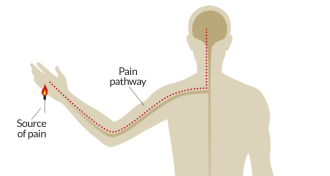 Neuroscience
NeuroscienceNo-pain gene discovered
Scientists have identified a new genetic culprit for the inability to perceive pain.
-
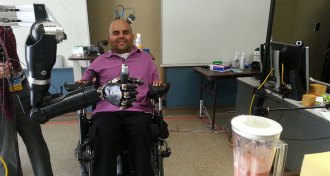 Neuroscience
NeuroscienceBrain implants let paralyzed man move robotic arm
Implanting tiny silicon chips in the action-planning part of a paralyzed man’s brain let him smoothly control a robotic limb with his thoughts.
By Meghan Rosen